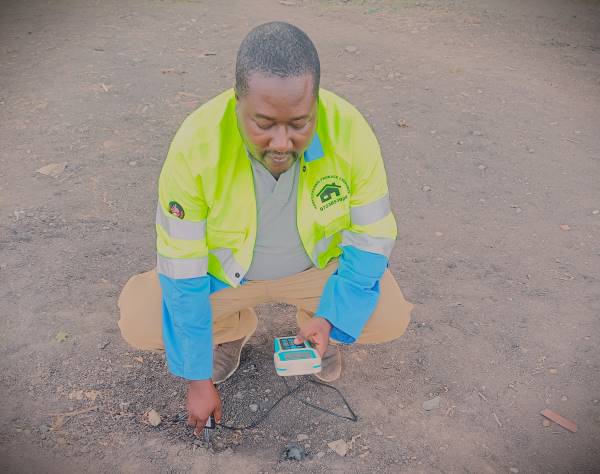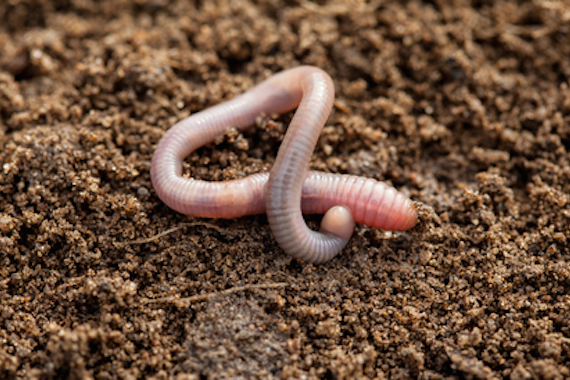Soil analysis has become an essential factor for effective crop cultivation in Kenya and as opposed to earlier soil testing done in laboratories and research centers which took long to produce results, todays’ technological advancements and digitalization are making the process shorter and affordable even for farmers from remote areas.
One of these technological advancements applicable by many farmers in the country is the use of Internet of Things (IOT) to perform soil testing and analysis anywhere, anytime at the lowest possible rate thanks to involvement by many public-private sector players to ease the burden on smallholders.
“We have a variety of IoT-based soil testing kits such as the rapid premium soil test kit, and the soil savvy among others that we have made available for our growers for a more informed farming practices,” said Charles Odhiambo, director at Hortitechno Produce and Services Ltd.
Reaching far-flung farmers
These are many soil testing service providers in Kenya drawn from the public and private sectors which work closely with lead farmers and established agrovets across the country to reach far-flung farmers.
This is because some of these services and especially buying the digital soil testing kits can be expensive for smallholder farmers.
“Our IoT soil testing kits goes at Ksh120,000 each that can be quite expensive for small-scale growers and so to enable the farmers get the essential service conveniently and at affordable fee, we partner with bigger agrovets in all parts of the country who are closer to the farmer,” said Charles.
Lead farmers with financial might can also purchase the equipment for their own use and offer services to fellow farmers.
How it woks
IoT involves the use of sensors and other installed gadgets that enable diverse soil tests taken from various fields sent to the cloud database where information will be broken down and relayed back to farmers in real-time.
According to Charles, the IoT sensors can measure soil temperature, NPK, soil electric conductivity, volumetric water content, photosynthetic radiation, soil water potential and soil oxygen levels.
Some testing methods used platforms like Losant, among others to display result in form of graphical representation and then transferred readings via SMS.
“There are also other systems that use hardware like Bluetooth to transfer results to the users mobile which when connected to internet uploaded the readings to the server and then gave analysis on the readings, said Charles.
“The resultant data can then be used to optimise farming operations, identify trends and make subtle adjustments to conditions to maximise crop yield and quality and this is what we call Smart Farming,” he added.
Generally, the digital soil testing methods imply the use of electrodes to test components of a soil sample by simply inserting digital testers directly in the soil.
Average soil testing charges in Kenya
Generally, most of the soil testing service providers charge an average fee of Ksh1,500 for simple soil test to know the primary soil components such as pH, carbon, macronutrients and micronutrients.
The charges can be more ranging from Ksh2,000-6,000 depending on the soil pathogens to be tested.
Lucy Wangari, owner of Onion Doctor, an agricultural start-up which offers advisory services to farmers venturing in onion production in Kenya says that some soil testing labs charge between Ksh6,000-8,000 depending on which disease(s) being tested.
“I always take soil samples from my clients farms to the lab for in-depth analysis based on what I want to know about the soil. The charges can be quiet expensive but it is worth it,” said Lucy.
For Hortitechno Produce and Services Ltd, partnering with KALRO has seen them lower the prices for ordinary farmers.
“We decided to work with KALRO due to their well-equipped and government funded soil laboratory to offer soil nutrition test at Ksh2,500 and pathogenic tests at Ksh3,500 a total of Ksh6,000 for both,” said Charles.
However, according to Amos Mwitio, agronomist at Crop Nutrition Laboratory Services Ltd (Cropnuts), professional soil testing which is the most advanced level of soil testing has to be done in laboratory setup for professional analysis.
“Although this process takes a longer period because of its complexity and can be quiet expensive compared to other soil testing techniques, it is the most reliable giving in-depth data and feedback easy to interpret,” Said Amos.









